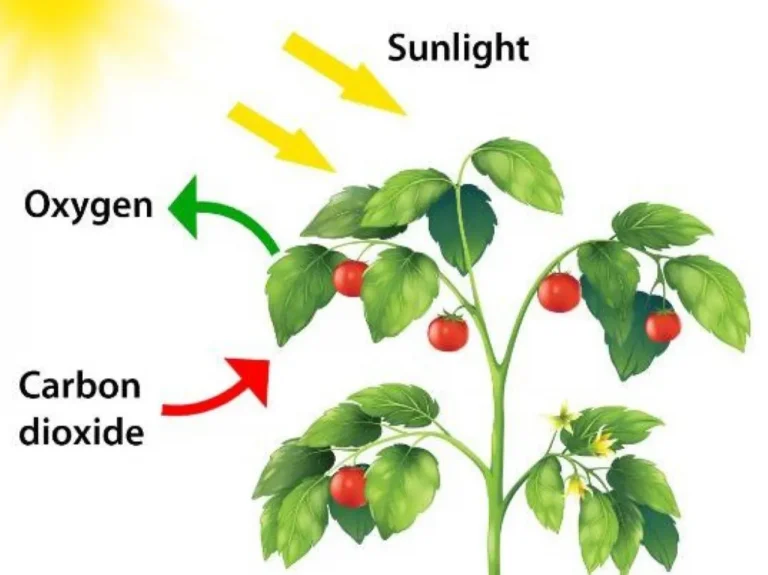Is Chemistry A Physical Science?
Chemistry is fundamentally the study of matter and its properties and transformations. But with extensive applications across scientific disciplines, there is debate around whether chemistry should be classified as a physical science or another category of science.
If you’re short on time, here’s the quick answer: Yes, chemistry is considered a physical science due to its focus on the composition, structure, properties, and transformations of matter and energy. Principles of physics and math are heavily used in chemistry.
Defining the Physical Sciences
When it comes to understanding the world around us, the physical sciences play a crucial role. These disciplines delve into the fundamental laws and principles that govern the natural world. One of the main questions that often arises is whether chemistry can be considered a physical science.
To answer this, let’s take a closer look at some of the key branches of the physical sciences: physics, astronomy, and earth science.
Physics
Physics is often regarded as the cornerstone of the physical sciences. It focuses on the study of matter, energy, and the interactions between them. The field of physics encompasses a wide range of topics, from classical mechanics and electromagnetism to quantum mechanics and relativity.
By understanding the fundamental laws of physics, scientists can explain and predict the behavior of objects and phenomena in the physical world.
Astronomy
Astronomy, on the other hand, is the study of celestial objects and phenomena beyond Earth’s atmosphere. It explores the vastness of the universe, from planets and stars to galaxies and black holes. By analyzing the light emitted by these celestial bodies, astronomers can gain insights into their composition, movement, and evolution.
Through the use of telescopes and other advanced technologies, astronomers continue to uncover fascinating discoveries about our universe.
Earth Science
Earth science, also known as geoscience, encompasses the study of the Earth and its processes. It includes disciplines such as geology, meteorology, and oceanography. Geologists examine the Earth’s structure, rocks, and minerals to understand its history and the forces that shape its surface.
Meteorologists analyze weather patterns and climate to predict and understand atmospheric conditions. Oceanographers study the oceans and their interactions with the atmosphere and land, shedding light on the intricate workings of our planet.
Now, back to the question at hand: is chemistry a physical science? The answer is yes. Chemistry is considered a physical science because it deals with the properties, composition, and behavior of matter. It explores the interactions and transformations that occur at the atomic and molecular level.
By studying chemistry, scientists can gain a deeper understanding of the building blocks of the physical world.
So, while physics, astronomy, and earth science each have their own unique focus, they all fall under the umbrella of the physical sciences. Together, these disciplines contribute to our understanding of the natural world and enable us to make incredible advancements in technology, medicine, and beyond.
Core Focus and Principles of Chemistry
Chemistry is indeed a physical science that deals with the composition, structure, properties, and changes of matter. It is an essential branch of science that provides a deeper understanding of the world around us.
The principles of chemistry are based on several core concepts and areas of study that form the foundation of this fascinating field.
Atomic Structure
One of the fundamental principles of chemistry is the study of atomic structure. Atoms are the building blocks of matter, and understanding their composition and behavior is crucial in explaining the properties and reactions of substances.
Chemists explore the arrangement of electrons, protons, and neutrons within an atom, delving into concepts such as electron configuration, energy levels, and periodicity.
Chemical Bonds
Chemical bonds are another key aspect of chemistry. These bonds are formed when atoms interact and share or transfer electrons. Different types of chemical bonds, such as covalent, ionic, and metallic bonds, play a crucial role in determining the properties of substances.
Chemists study the strength and characteristics of these bonds, which dictate the stability, reactivity, and physical properties of compounds.
Chemical Reactions
Chemical reactions are at the heart of chemistry. They involve the rearrangement of atoms and the formation and breaking of chemical bonds. Understanding the mechanisms and kinetics of chemical reactions allows chemists to predict and control the outcomes of these processes.
This knowledge is vital in fields such as drug development, materials science, and environmental studies.
Thermodynamics
Thermodynamics is the study of energy and its transformations in chemical systems. It provides insights into the heat, work, and energy changes that occur during chemical reactions and processes. Chemists use thermodynamic principles to determine the feasibility of reactions, calculate reaction enthalpies, and understand the behavior of substances at different temperatures and pressures.
Quantum Mechanics
Quantum mechanics is a branch of physics that is crucial in understanding the behavior of atoms and molecules. It involves the study of particles at the subatomic level and their wave-like properties. Chemists employ quantum mechanics to explain phenomena such as electron behavior, molecular orbitals, and spectroscopy.
This knowledge is essential in fields like quantum chemistry and materials science.
Chemistry encompasses a wide range of topics and applications, from studying the composition of materials to developing new drugs and materials. It is a dynamic field that continues to evolve and contribute to advancements in various scientific disciplines.
To learn more about chemistry and its principles, you can visit websites like American Chemical Society or Royal Society of Chemistry.
Use of Physics and Math in Chemistry
Chemistry, often considered a branch of physical science, heavily relies on the principles of physics and mathematics to explain the behavior of matter and its interactions. In fact, the marriage between chemistry and these two disciplines has led to groundbreaking discoveries and advancements in various scientific fields.
Kinetic Molecular Theory
The Kinetic Molecular Theory, a fundamental concept in chemistry, is built upon principles of physics. It describes the behavior of gases by attributing their properties to the motion of individual particles.
According to this theory, the temperature of a gas is directly related to the average kinetic energy of its molecules. The equations derived from this theory help chemists predict the behavior of gases under different conditions.
Gas Laws
Gas laws, such as Boyle’s Law, Charles’s Law, and Avogadro’s Law, are essential in understanding the behavior of gases. These laws relate variables such as pressure, volume, temperature, and number of moles.
The mathematical relationships derived from these laws allow chemists to make predictions about how gases will behave under different conditions, enabling them to design experiments and solve complex problems.
Quantum Mechanics
Quantum mechanics, a branch of physics, plays a crucial role in understanding the behavior of atoms and molecules. By applying mathematical models and principles, chemists can describe the electronic structure of atoms and predict the arrangement of electrons in molecules.
This knowledge is essential for understanding chemical bonding, reactivity, and the properties of substances.
Spectroscopy
Spectroscopy is a powerful tool used in chemistry to study the interaction of matter with electromagnetic radiation. It relies on the principles of physics to analyze the absorption, emission, or scattering of light by atoms and molecules.
Spectroscopic techniques, such as infrared spectroscopy and nuclear magnetic resonance spectroscopy, provide valuable information about the structure, composition, and behavior of substances.
For more information on the relationship between chemistry and physics, you can visit the following authoritative websites:
- American Chemical Society – Kinetic Molecular Theory
- Khan Academy – Chemistry
- Physics Classroom – Physics Concepts
Applications in Material Science and Engineering
Chemistry plays a crucial role in material science and engineering, where it is applied to manipulate and improve the properties of various materials. By understanding the chemical composition and behavior of different substances, scientists and engineers can develop new materials with enhanced characteristics, leading to advancements in various industries.
Semiconductors
Semiconductors are essential components in modern electronic devices, such as computers, smartphones, and solar panels. Chemistry is vital in designing and manufacturing semiconductors with specific properties.
For example, doping techniques involve introducing impurities into the semiconductor material to alter its conductivity. This process relies on the understanding of chemical reactions and the behavior of elements in solid-state materials.
Polymers
Polymers, also known as plastics, are widely used in everyday life, from packaging materials to medical devices. Chemistry allows scientists to create polymers with desired properties by controlling the molecular structure and composition.
By manipulating the monomers and polymerization processes, it is possible to produce plastics with varying strength, flexibility, and heat resistance. This knowledge is invaluable for developing new materials that meet specific industrial needs.
Alloys
Alloys are metallic materials made by combining two or more elements, often to improve the mechanical, electrical, or chemical properties of the base metal. Chemistry is essential in understanding the interactions between different elements and their effects on the resulting alloy.
By carefully selecting and controlling the composition of alloys, engineers can create materials with enhanced strength, corrosion resistance, or other desired characteristics. This knowledge is particularly important in industries such as aerospace, automotive, and construction.
Fuels
Chemistry plays a significant role in the development and optimization of various fuels. By understanding the chemical reactions involved in combustion, scientists can design fuels that provide efficient energy release and minimize environmental impact.
Chemistry also helps in developing alternative fuels, such as biofuels or hydrogen, which can reduce reliance on fossil fuels and contribute to a more sustainable future.
Relationship to Other Sciences
Chemistry is a physical science that explores the composition, properties, and behavior of matter. It is closely related to other branches of science, including physics and biology, while also having distinct characteristics that set it apart from the life sciences.
Overlap with Physical Sciences
Chemistry and physics share a strong overlap, as both sciences study the fundamental properties of matter and energy. In fact, the boundary between chemistry and physics can sometimes be blurred, especially in areas like physical chemistry, which combines principles from both disciplines.
For example, understanding the behavior of atoms and molecules requires knowledge of both chemical bonding (chemistry) and quantum mechanics (physics).
Chemistry also has close ties with other physical sciences, such as materials science and environmental science. Materials science investigates the structure and properties of various materials, and chemistry plays a crucial role in understanding their chemical composition and reactions.
Environmental science, on the other hand, relies on chemistry to analyze pollutants, study chemical reactions in the atmosphere, and develop strategies for environmental conservation.
Distinctions from Life Sciences
While chemistry shares some similarities with the life sciences, such as biology and biochemistry, there are distinct differences that set it apart. Chemistry primarily focuses on the study of matter, whereas the life sciences center around living organisms and their processes.
Chemistry provides a foundation for understanding biological processes at the molecular level. It helps explain how molecules interact in living organisms, such as the chemical reactions involved in metabolism or the structure and function of biomolecules like proteins and DNA.
However, biology goes beyond the scope of chemistry by exploring higher-level concepts like genetics, evolution, and ecological systems.
Conclusion
While chemistry has critical applications across scientific disciplines including biology, its focus on the properties of matter and energy categorize it as a physical science. The heavy use of physics and math principles further align chemistry with disciplines like astronomy and materials science.
Chemistry provides insights into the physical world at the atomic and molecular scale, firmly establishing its place among the physical sciences.







